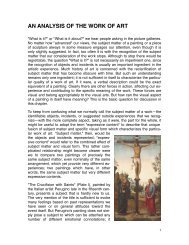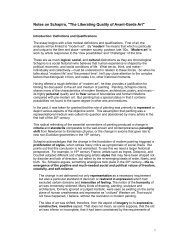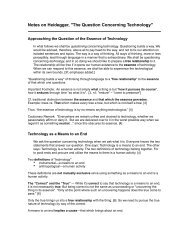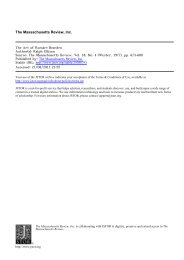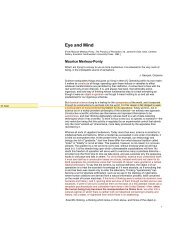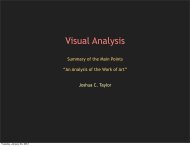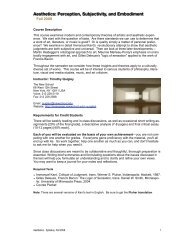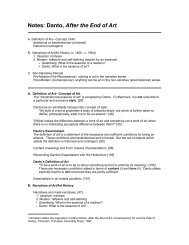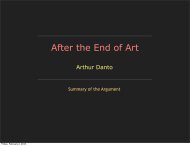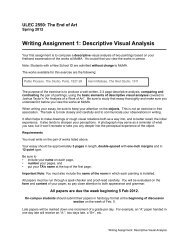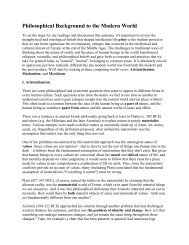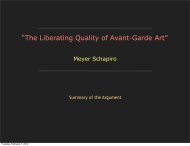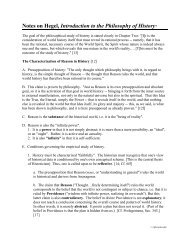Poetry, Justice, Philosophy, and the State - Timothy R. Quigley
Poetry, Justice, Philosophy, and the State - Timothy R. Quigley
Poetry, Justice, Philosophy, and the State - Timothy R. Quigley
You also want an ePaper? Increase the reach of your titles
YUMPU automatically turns print PDFs into web optimized ePapers that Google loves.
That said, <strong>the</strong> Republic should not be read as a program for <strong>the</strong> educational foundation<strong>and</strong> structure of <strong>the</strong> state. Ra<strong>the</strong>r Plato is trying to show what is needed to bring <strong>the</strong> justindividual into harmony with a just community. The question is what it will take to bring<strong>the</strong> individual’s inner state <strong>and</strong> <strong>the</strong> public state toge<strong>the</strong>r in justice.On Plato’s view, poetry must be understood in <strong>the</strong> context of a just state. That gives us away to read <strong>and</strong> assess <strong>the</strong> Republic. 2We should also keep in mind <strong>the</strong> sophists’ attempts to reinforce a new ethos in whichjustice was simply a pragmatic response to mistrust, fear, <strong>and</strong> self-interest. This isexpressed in <strong>the</strong> Sophist’s claim: “No one does what is right voluntarily.” Plato followsSocrates in arguing that justice is more “a condition of <strong>the</strong> soul” than a relation to o<strong>the</strong>rs.It exists not when each person watches over o<strong>the</strong>rs, but when each watches over <strong>the</strong>irown soul <strong>and</strong> behavior. It was in that spirit that politics <strong>and</strong> pedagogy would be pursuedby Plato <strong>and</strong> his followers.Thus, <strong>the</strong> model for real education is not <strong>the</strong> ideal state of <strong>the</strong> Republic, but <strong>the</strong> processexemplified in Plato’s text <strong>and</strong> practiced in his Academy, where education thrives onquestioning <strong>and</strong> research, not <strong>the</strong> administration of principles, prohibitions, <strong>and</strong>sanctions.Thus, Plato’s proposal is not sophistic or Hobbesian — not a social contract for mutualself-protection. Ra<strong>the</strong>r it’s intended to be a condition that allows humans to rise aboveself-interest in taming <strong>and</strong> harmonizing <strong>the</strong> tyrannical <strong>and</strong> <strong>the</strong> philosophical aspects of<strong>the</strong> soul. The real danger for Plato is not so much art <strong>and</strong> artists. Ra<strong>the</strong>r, it is ethicaleducation <strong>and</strong> sophists.The poets, for <strong>the</strong>ir part, can play a role by looking to reality <strong>and</strong> <strong>the</strong> needs of <strong>the</strong>community ra<strong>the</strong>r than mere imitations appealing to popular opinion. (Republic 602ab;604d-605a)<strong>Timothy</strong> <strong>Quigley</strong>, revised 14 Aug 132Hans-Georg Gadamer, “Plato <strong>and</strong> <strong>the</strong> Poets”, in Dialogue <strong>and</strong> Dialectic: Eight HermeneuticalStudies on Plato, trans. P. Christopher Smith, New Haven: Yale University Press, 1980.



